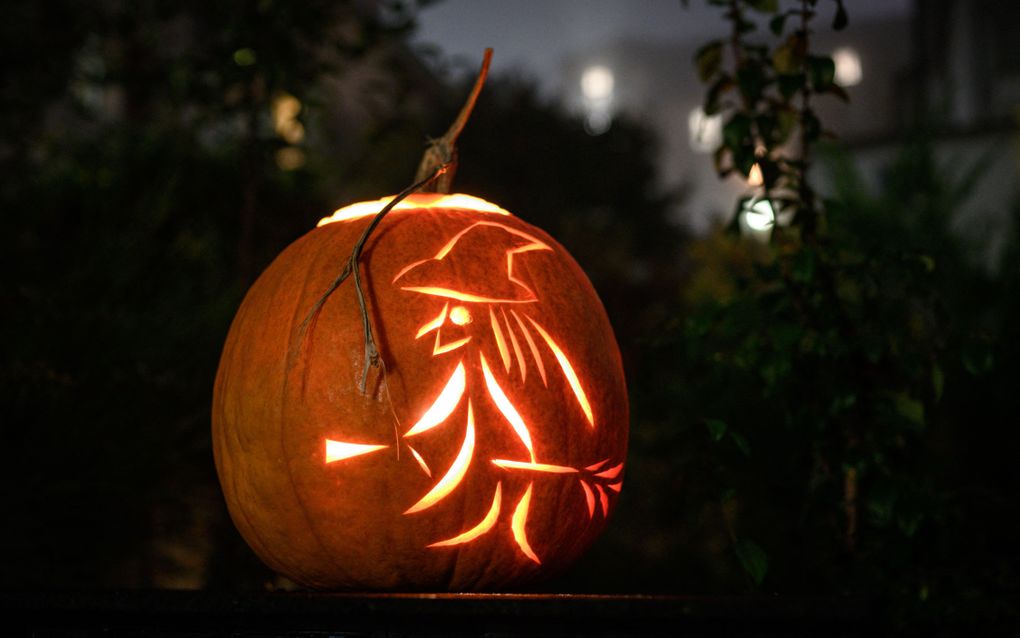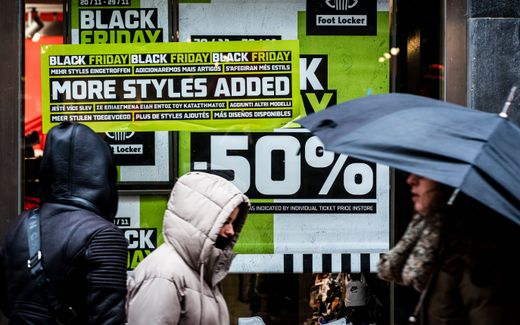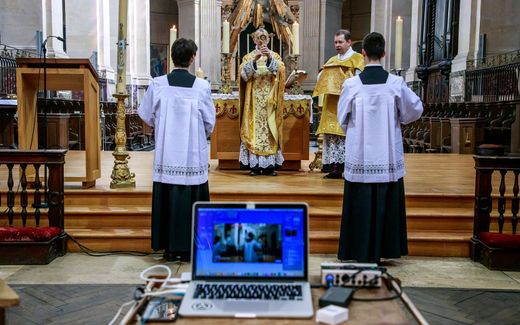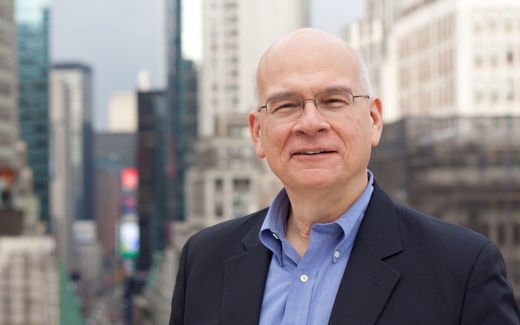What Christians should know about Halloween

Photo AFP, Fabrice Coffrini
Christian Life
Anyone who looks on the streets late October should not be surprised to see witches, zombies and skeletons walking on the roads. Sometimes, they even ring the doorbell, asking for candy. The traditions of Halloween have received more and more attention during the last few years. How should Christians deal with Halloween, the feast of darkness?
Stay up to date with Christian news in Europe? Sign up for CNE's newsletter.
Even though Halloween has always been more prominent in the United States, it initially had European roots. The feast is based on the traditions of ancient Celtic occultism. According to the Celts, the spirits of the deceased kept wandering around. They visited families they did not get along with during their life and disturbed life. On October 31, the Celts celebrated their New Year's Eve. They believed that the boundary between the world of ghosts and the world in which we lived thinned. Therefore, the spirits of the deceased could enter the world even more easily. To scare them off, the Celts would wear costumes. In addition, they would place food at the entrances of their houses to satisfy the ghosts.
The pagan traditions of Halloween have now mixed with Christian traditions. That is how the name Halloween came into being. The early Christian church attempted to christianise pagan feasts by giving them a new connotation. On November 1, Roman Catholic believers worship all Saints. The next day, they pray for the dead to redeem them from purgatory. The preparations for these holidays take place on October 31: All Hallow's Eve, in other words: Halloween.
Contact with the deceased
Despite the Christian flavour, many Christians hesitate to celebrate Halloween. "Halloween glories violence, death and seeking contact with the deceased. However, the reality of demons is not something to play with”, the Dutch professor Mart-Jan Paul, an expert in the field of theology and occultism, said in an earlier interview with the Dutch daily, Reformatorisch Dagblad. He is concerned about the popularising trend of Halloween among children. "Halloween parties are presented as innocent dress-up parties that do not influence children. However, the opposite is true. Halloween is all about worshipping spirits and connections to the deceased. In addition, the view on death is at a great distance from the Christian faith."
Paul points out that people who get involved in satanic circles or witchery can suffer the consequences of that many years after. "I know people who broke with their occult past and became Christians. Their past is still pestering them. They are threatened or cursed. It is a spiritual battle that manifests itself."
Satanic
Halloween is one of the most important feasts in satanic circles; something that not many people are aware of, former witch Elly Loos says. For years, she wandered around cemeteries to call upon the spirits of the dead. As a black witch, she cursed Christians. Until she went to church and was caught by the message of the Cross, the Reformatorisch Dagblad writes.
"The average person sees Halloween as a fun and happy feast with pumpkins and dress-up parties. That is worrying", she says. Loos hears from people that they do not like hearing about witchery and satanism because it scares them. "But the other reality is real; the world of witches and satanism, where Satan rules. It is a fact that the occult world is overruling us, and people get used to it more and more."
Loos notices that also Christians join the Halloween celebrations. "Many Christians participate in the activities as if nothing is wrong with it. I see it as a shortcoming of church leaders and pastors in churches that they do not equip their followers sufficiently."
Witchery is life-threatening, Loos warns. She broke with it but is still confronted by her past. "They keep an eye on me. The satanic network is large. They know who you are. But the Lord Jesus keeps everything under control. I am not scared."
Alternatives
Some churches in the Netherlands offer an alternative to Halloween celebrations. In a Protestant church in the southern part, a commission organised a feast of Light for all children from town last year. The youth was invited to church and heard about Jesus, the Light of the world. Afterwards, they received a lampion with which they walked through the village.
In another Reformed congregation, the alternative to Halloween was called Happyween. The event took place for a whole week and consisted under more of a parrot show in a mall and a light tour.
Related Articles






